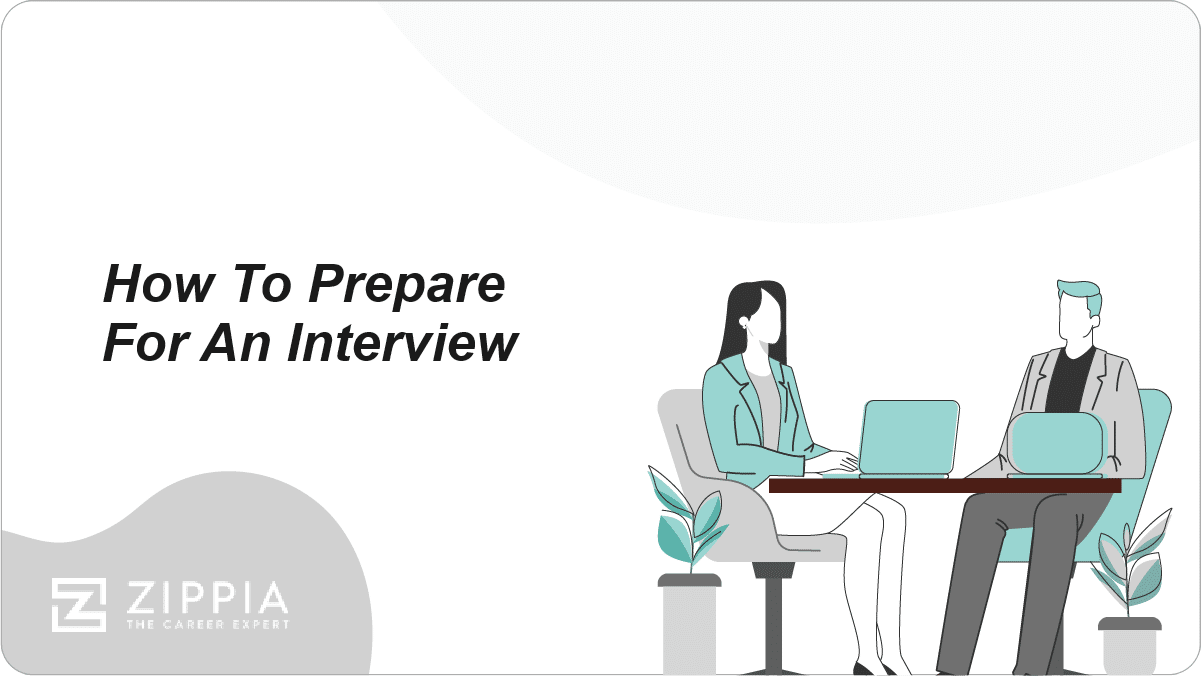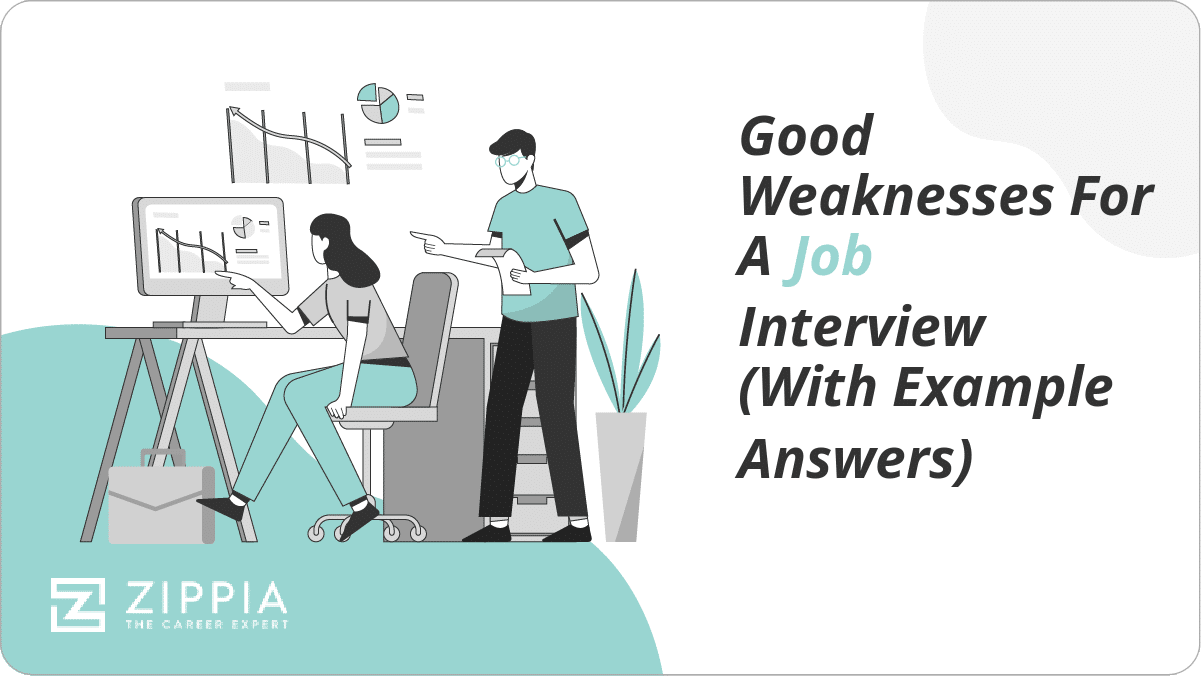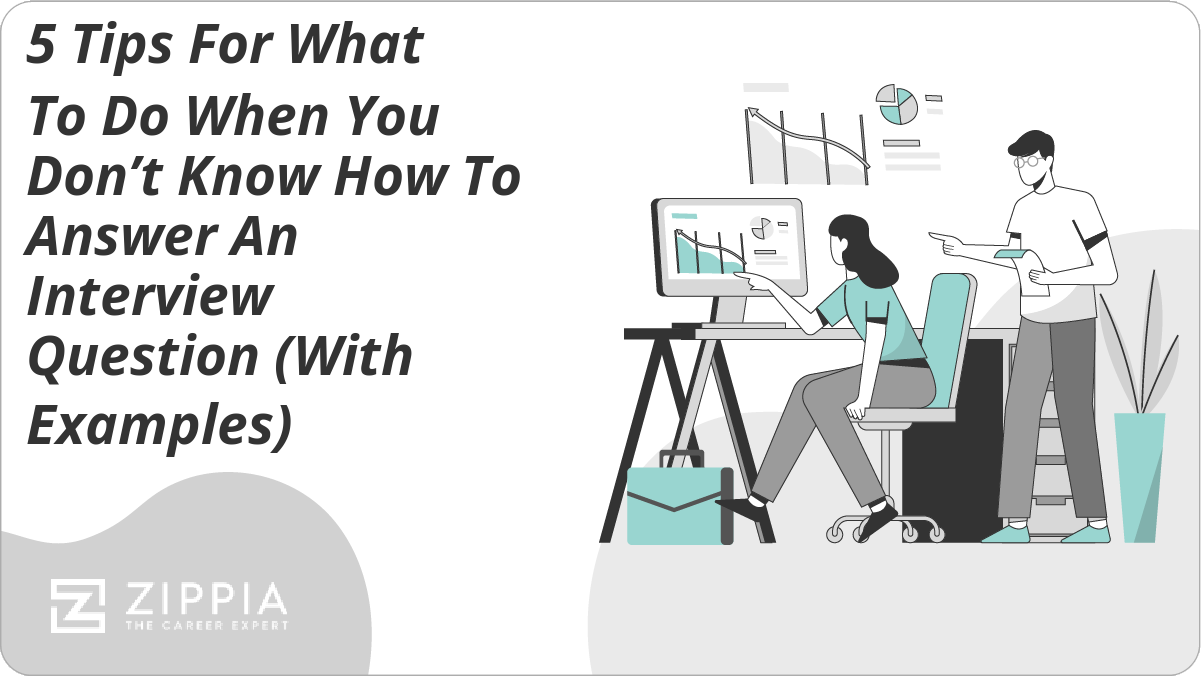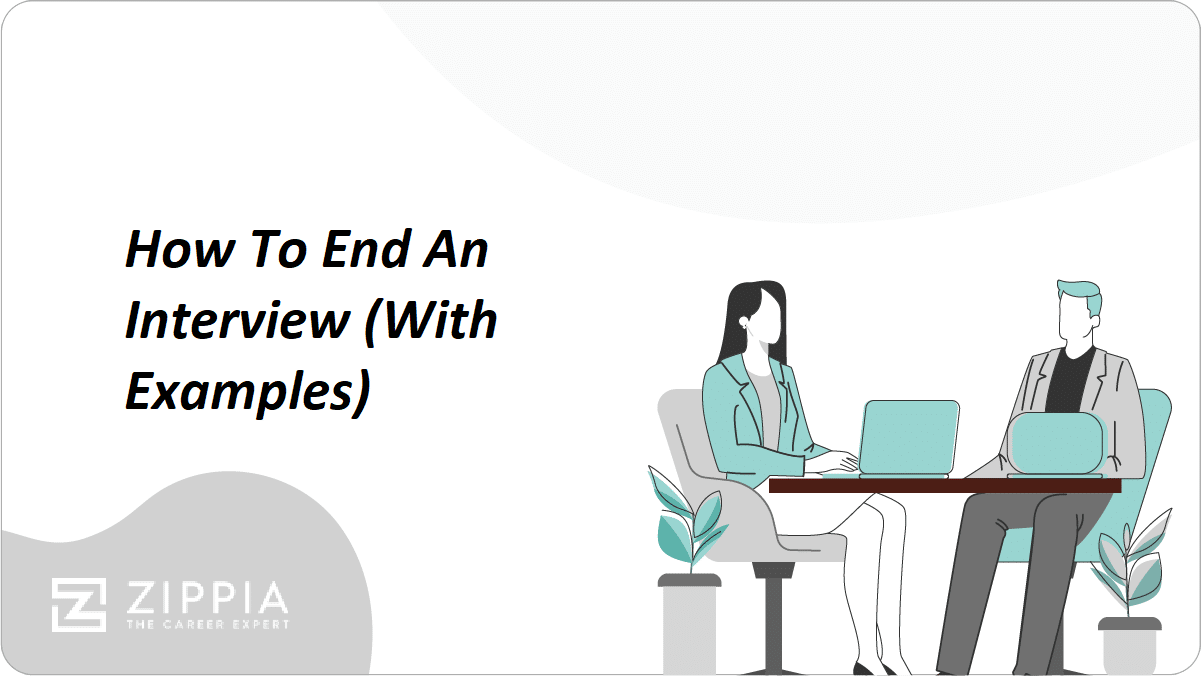- Interview Prep
- Interview Preparation Checklist
- Star Method For Answering Questions
- Star Interview Questions
- Words To Use In An Interview
- Mock Interview Preparation
- How To Make A Good Impression
- Bring Writing Samples
- How To Relax Before An Interview
- Interview Coaching
- Common Video Interview Mistakes
- Common Phone Interview Mistakes
- How To Ace Your Interview For A Remote Job
- Good Weaknesses For A Job Interview
- Good Strengths For A Job Interview
- Talk About Being Laid Off
- How To Prepare For A Phone Interview
- How To Decline An Interview
- How Early Should You Arrive For An Interview
Find a Job You Really Want In
Getting an interview can be exciting, but it’s important to know how to prepare for an interview. Preparing for an interview helps you be more confident when you are in the actual interview and it can help impress your interviewer.
If you have an interview coming up, we’ll go over how to prepare for an interview and provide some common interview mistakes you should avoid to help you ace your interview.
Key Takeaways:
-
Before going to the interview, you should review the job description and research the company to get an idea of what their ideal candidate is.
-
Reviewing common interview questions can help you come up with examples from your past that highlight your relevant skills and qualifications.
-
You should avoid being late, arriving unprepared, or looking unprofessional when going to an interview.

How to prepare for an interview
When preparing for an interview, you should start by reviewing the job description and researching the company. This will help you get an understanding of the skills and qualifications needed for the position and who their ideal candidate is.
Here is a more detailed list of how to prepare for an interview:
-
Review the job description. Reviewing the job description will help you figure out what the required skills or experiences are. This will help incorporate your relevant skills and experiences to show the interviewer that you are the best candidate for the position.
-
Research the company. Researching and reviewing the company’s “About Us” page will help you gain a better understanding of what the company standards are, what their goals are, and what their mission and values are.
Researching will also prepare you for questions like “Why do you want to work here?” because you’ll be able to give a concrete example as to why you like this specific company, rather than a vague one about simply enjoying the type of job you applied for.
For example: “After researching your organization I believe I’m a perfect fit, as I wholeheartedly support outdoor learning environments. I have over 6 years of experimental education experience myself, and I’m passionate about the evaluation system you’ve implemented at your school.”
-
Highlight your relevant skills and qualifications. Researching the job description and the company will guide you in how you should present your most important skills and qualifications. Think of at least ten skills that you have that match the job requirements. These could include:
-
Hard or soft skills
-
Personal or professional qualifications
-
Certifications
-
Work or volunteer experiences
-
Education
-
Tool proficiencies
After you take the time to think about what makes you an ideal candidate, you should write down your assets so you can rehearse them in your head. This will allow you to memorize important details, and reduce anxiety levels during your interview.
-
-
Review common interview questions. Reviewing common interview questions will also help you answer the questions that the interviewer will ask. It will also help you include the relevant skills and qualifications that you have written down already.
Some examples of common questions you may hear in your interview include:
-
Why do you want to work here?
-
What interests you about this role?
-
What are your greatest strengths or weaknesses?
-
What specific skill set do you bring to this job?
-
-
Think of examples from your past. After you think about your skills, you should find ways to weave them into personal examples from your past. After all, it’s important to back up your words with real-life experience.
Think of examples from your work, education, or volunteer history where you showcased some of the ten skills you wrote down. When in doubt, try to make your stories more relevant and believable by adding dates and quantifying numbers.
Sharing specific stories to back up your skills is extremely valuable when answering the employer’s questions. When you combine the two, you’ll be set to shine in your interview.
-
Come up with questions you want to ask the interviewer. If you’ve ever been interviewed before, you know the hiring manager will hit you with the classic “Do you have any questions for me?”. If you’re unprepared, you might not have anything to ask, but unfortunately, saying “no” is by far the worst way to answer.
Some relevant questions you can ask employers are:
-
What does a typical workday in this position look like?
-
What projects are the company currently working on?
-
What’s your favorite part about working here?
-
Can you tell me about the history of this position?
-
What would you say are the company’s most important values?
Obviously, you shouldn’t go overboard, but picking out one or two questions you favor and being prepared to ask them will do wonders for your interview performance. Remember you listen intently to the hiring manager’s answers and maintain a polite attitude throughout.
-
-
Brush up on proper language and etiquette. Speaking of a polite attitude, it can also be wise to brush up on proper language and etiquette before going into the interview.
Leave a good first impression by giving the hiring manager a polite and upbeat greeting. Saying “I’m pleased to meet you”, and shaking their hand is ideal.
Be aware of your posture and body language. Make sure you have open body language and you maintain eye contact during the interview. You should also have a strong speaking voice and you use professional language and grammar.
-
Conduct a mock interview. Practicing your interview with a friend or family member will help you be confident in your interview.
Schedule a meeting or call someone you know. This can be a friend, family member, or acquaintance, as long as they’re willing to give you honest feedback.
Ask them to bring up different questions an employer might ask, and have them mix things up if you do multiple interview attempts.
-
Prepare to bring the correct materials. Sometimes employers will ask for certain materials, and sometimes they won’t. Either way, nothing says “I’m perfect for this position!” like having useful materials together when you sit down in front of a hiring manager.
Therefore, you should make a list of everything you need or want to bring. This list could include:
-
Your portfolio
-
An extra copy of your resume
-
Your list of references
-
A notepad and pen or two for taking notes
-
Any projects or requests the hiring manager asked for
You can gauge what you need based on the type of position and formality of the interview, but usually, bringing any of these items with you will only serve to increase your chances of getting the job.
-
-
Prepare your interview outfit the night before. As your interview draws closer, a good way to calm your jitters is to get everything together the night before. This includes your appearance, as you don’t want a last-minute decision to leave you with mismatched socks and a full bedhead.
If you’re not sure what to wear, you can judge based on how formal your interview is. For less formal interviews, some slacks, khakis, or a skirt with a button-up shirt will do. However, a suit and tie or dress may be necessary for fancier interviews.
After you’ve decided on an outfit, you’ll then want to consider what you’re going to do with your hair. Make sure your hair is out of your eyes, and if necessary, use hair gel or pomade to do so. If you have longer hair, a ponytail can be a good option. In addition, if you have facial hair, make sure you’ve either shaved or that everything is well groomed.
-
Get directions. Finally, the night before your interview you should double check the location. Get an idea of how long it will take you to commute, and calculate the best time you should leave the next day.
This will give you a better idea of how long you have to get ready, and also assist in helping you get enough sleep.
Remember to add some extra time, as it’s proper interview etiquette to arrive 15 minutes early, and you never know how difficult it will be to find parking.
-
Follow up after the interview. You should be prepared to follow up with the employer after the interview. This should be done within 24 hours of your interview.
Following up after an interviewer will show the hiring manager your interest and it will remind them of your conversation. It will also give you an opportunity to bring up any points you forgot to mention or ask any questions.
Choose From 10+ Customizable Resume templates
Zippia allows you to choose from different easy-to-use resume templates, and provides you with expert advice. Using the templates, you can rest assured that the structure and format of your resume is top notch. Choose a template with the colors, fonts & text sizes that are appropriate for your industry.
Common interview mistakes to avoid
Some common interview mistakes include not being prepared, arriving late, and looking unprofessional. Here are some more mistakes to avoid in your interview:
-
Being unprepared. Not being prepared with the materials you’re supposed to bring or what you want to say in your answers will make the interviewer throw your resume out. Make sure you prepare for your interview so you can impress your interviewer.
-
Arriving late. Being late to an interview comes across as unprofessional, and you should avoid it. It’s best to be 10 to 15 minutes early. While accidents happen that could cause you to be late, you should try to leave with enough time to account for traffic.
-
Not looking professional. Coming to your interview looking like you just rolled out of bed or not wearing the appropriate interview attire. It can only take an interviewer seven seconds to make a first impression, so your appearance should matter.
-
Talking too much. While you want to talk enough to answer the questions thoroughly, you want to avoid talking too much. Keep any discussions about your personal life to a minimum and keep the conversation professional.
-
Being too personal with the interviewer. You may think you and the interviewer have a connection and feel comfortable with them, but don’t let that make you get too personal with them. You should stick to asking professional questions and
-
Using your phone. Using your phone in an interview just comes off as rude and unprofessional. You should avoid having your phone in your hand or in your pocket when you enter the interview. You should have your phone on silent or off to help avoid any phone calls or texts distracting you.
-
Badmouthing your previous employer. Even if you hated your last boss and workplace, avoid badmouthing them. If you badmouth your previous employer, it can make your interviewer think you were the problem and you seem unprofessional.
How to prepare for an interview FAQ
-
How early should you be to an interview?
You should arrive between 10 and 15 minutes early for your interview. This will allow you enough time to check in with the receptionist and take a few minutes to prepare and get ready for the interview.
If you are unsure where the interview is, give yourself more time to find the building and the office. Just wait to check in between 10 and 15 minutes. Showing up too early may make the interviewer feel rushed to finish up what they are doing.
-
How long does it take to make a first impression in an interview?
It can take only seven seconds for an interviewer to make a first impression of you. They will look at your outfit and how you present yourself and it will help them make a decision on how they feel about you.
Making a good first impression is important in an interview because it can determine the outcome of the interview.
Final thoughts
While interviews can be stressful, following these ten steps will help take the edge off, and leave you prepared to knock those questions out of the park.
Interviews are all about making a positive impression. The more positive, motivated, and qualified you seem, the more likely you’ll be hired. Stay calm and remember your training.
Good luck!
Expert opinion
What are some quick tips for preparing for an interview?

Thea Kelley
Job Search Interview Coach
First, be proactive in your interview preparation by identifying what aspects of your background, skills and strengths really differentiate you from other qualified applicants. Presumably, everyone they’re interviewing has the basic qualifications. What do you have that’s more, better, unique? That’s what you need to emphasize throughout your interview.
You might call those your key selling points. I call them REV Points because, in order to really make you stand out, these points need to be Relevant, Exceptional and Verifiable. I explain how to identify and use your REV Points in a free report that you can get by subscribing to my job search tips blog, The Great Job Sooner Blog.
And of course, make sure you’ve prepared for all the likely questions. Make sure your answers are concise (rarely longer than a minute), specific, and focused on why you’re the right person for the job.
What should I ask the hiring manager?
Joe Mangum
Promoted Resume
In my view, this might be the most important part of an interview. Your questions will directly reflect your desire to work there, your ability to influence the organization, and your “fit” within the culture. I coach our clients to find someone who works at the company and pick their brains about what it’s like to work there. This will help formulate questions.
- Business questions about the market, growth plans, and innovation are always good.
- Questions about what it takes to be successful in that particular role are very helpful
- Clarifying questions about the role and job description will show that you are intuitive and give attention to detail
References
-
U.S. Bureau of Labor Statistics – Employment Interviewing: Seizing the Opportunity and the Job
- Interview Prep
- Interview Preparation Checklist
- Star Method For Answering Questions
- Star Interview Questions
- Words To Use In An Interview
- Mock Interview Preparation
- How To Make A Good Impression
- Bring Writing Samples
- How To Relax Before An Interview
- Interview Coaching
- Common Video Interview Mistakes
- Common Phone Interview Mistakes
- How To Ace Your Interview For A Remote Job
- Good Weaknesses For A Job Interview
- Good Strengths For A Job Interview
- Talk About Being Laid Off
- How To Prepare For A Phone Interview
- How To Decline An Interview
- How Early Should You Arrive For An Interview

















